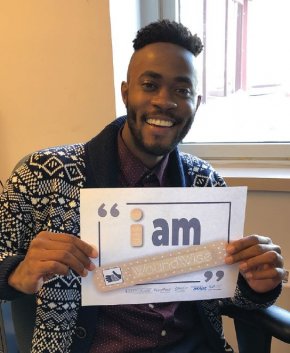Happy Worldwide Pressure Injury Prevention Day!
Worldwide Pressure Injury Prevention Day is an annual global event in which healthcare professionals come together to raise awareness for pressure injuries. At Extendicare, our Quality, Risk and Innovation team constantly monitors and reviews Pressure Ulcers – one of our quality indicators – with the intent to obtain positive quality outcomes. Every two months, the team holds a ‘Quality Call’ to discuss indicator results and strategies that our homes have put in place, and to share innovative strategies and successes.
In 2019, team members from the Quality, Risk and Innovation team came together for The WoundWise Project. This initiative was established to enhance resident care and to reduce pressure injuries. The focus for this year was on education and prevention and enabling team members to become ‘WoundWise’.
Each of our homes has a wound care team using a multidisciplinary approach to address skin and wound care with evidence-based policies and programs, and access to clinical wound expertise. Extendicare’s team members are educated on skin and wound prevention programs, and additional advanced education is provided for our wound care leads in each home.
Every month, the WoundWise project included messaging to all staff members with information, tips, and/or tricks for the prevention and treatment of wounds and skin issues. The WoundWise education was not restricted to the home level – even our team members at Corporate Office had the opportunity to learn trips and tricks for wound prevention!
“I’m amazed that nutrition and movement are vital to reducing pressure injuries,” said Lucas, Extendicare’s Social Media and Intranet Coordinator. “I’ll always remember that hydration is key in the healing process.”
In March 2019, the initiative focused on Nutrition Tips and did you know that if a person is malnourished, they are more likely to develop pressure injuries (also known as ‘wounds’ and ‘bed sores’) and existing pressure injuries are slower to heal? Here are 4 Nutrition Tips to help wounds heal and maybe to even prevent this painful condition from happening:
- Energy! We need energy for all bodily functions – for pressure areas, with enough energy intake you can reduce and prevent the breakdown of much-needed protein for energy.
- Protein! Protein is essential for healing pressure injuries – this is especially challenging in the elderly with their reduced muscle mass and low activity levels.
- Good sources of protein include eggs, yogurt, cheese, meats and nuts
- Hydration! Drink water! You have to keep the soft skin flexible to be able to heal. Check skin turgor and oral moisture to quickly evaluate hydration. Remembers that wounds are draining a lot mean fluid (and protein) is lost from the body. Sweating, vomiting and fever also cause loss of fluid.
- Eating variety and a balanced diet: There are many vitamins and minerals that have essential functions to promote health and healing. Eating lots of different types of food and being sure to have a balance from all food groups has a wealth of these nutrients.
Extendicare takes pride in providing quality care and service, and we are thankful to have an amazing group of dedicated Long-Term Care Consultants on the Quality, Risk, and Innovation Team passionately advocating for a preventative educational approach to wound healing.
Please keep in mind that everyone at risk for or with existing pressure injuries should have a complete nutrition assessment by a Registered Dietitian.
Sources
- The Role of Nutrition for Pressure Ulcer management: National Pressure Ulcer Advisory Panel, European Pressure Ulcer Advisory Panel, and Pan Pacific Pressure Injury Alliance White Paper; Advances in Skin and Wound Care, April 2015
- Nutrition and Wound Healing, April 2015
- PEN Wound Care and Pressure Injuries Knowledge Pathways accessed February 2019
